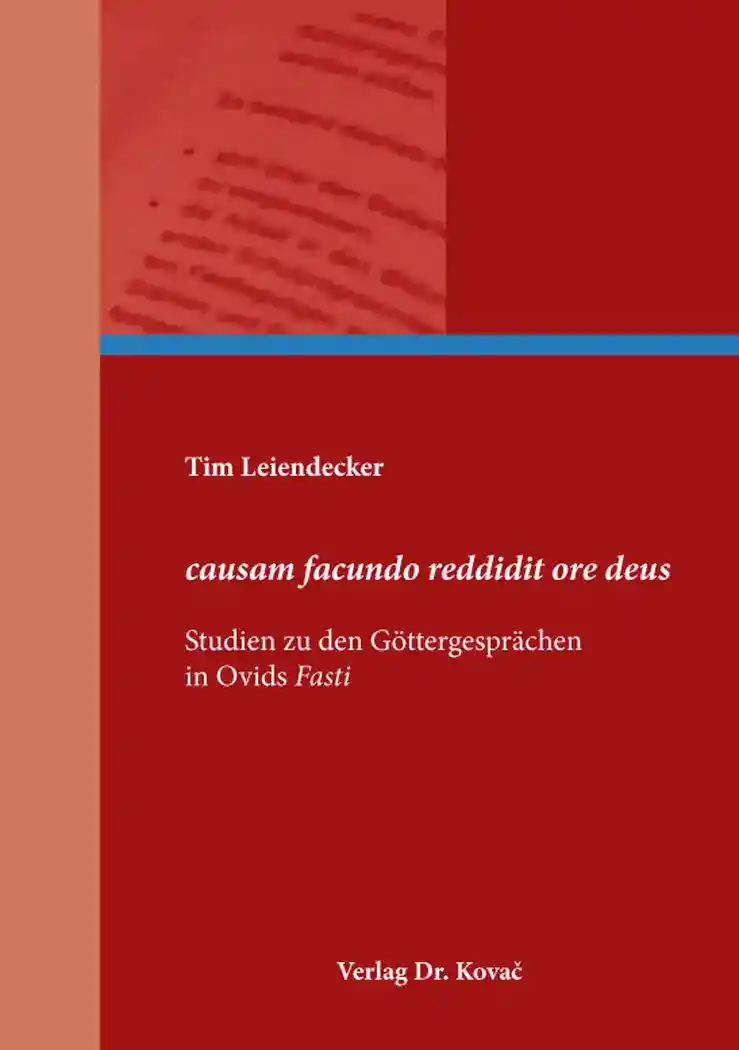Tim Leiendeckercausam facundo reddidit ore deus – Studien zu den Göttergesprächen in Ovids Fasti
Schriftenreihe altsprachliche Forschungsergebnisse, volume 14
Hamburg 2019, 632 pages
ISBN 978-3-339-10966-8 (print)
ISBN 978-3-339-10967-5 (eBook)
About this book deutschenglish
The Roman poet Ovid presents stories detailing the origins of holidays and constellations in his poem Fasti. In his literary depiction of the Roman (festival) year, Ovid orients himself on the official festival calendar, but sets his own priorities with regard to the selection and scope of the entries to deal with.
In order to be able to describe the many different holidays, customs, temple consecrations or constellations with their respective origins (aitia), the text requires plenty of information. The narrator of the Fasti stages this process of gathering information in the work itself. In addition to studying various sources such as annals or the official festival calendar, the narrator uses a technique that will be the focus of this study: He asks goddesses and gods to provide him with the background to certain entries in the calendar. Usually, each respective deity is asked about the entry which she/he has a personal connection to. Accordingly, the deity appears as an (would-be) expert. The special appeal of these scenes results from the different personalities of the goddesses and gods the poet meets. These include, for example, central goddesses and gods of ancient mythology such as Juno, Mars and Venus, the Muses, as well as deities such as Flora or Janus along with ’exotic’ gods like Semo Sancus Dius Fidius. The conversations with these characters are as diverse as their personalities. However, these scenes are all characterized by a special vividness and liveliness, which makes them a unique type of scene in the Ovidian Fasti.
This survey studies these scenes using individual, text-based interpretations. The focus is on the framework of the scenes as conversations, which form a stage for the interlocutors. This study on the talks with the gods looks at how each dialogue’s participants use the conversations to present content, but also to sketch their own profile.
In this way, this survey would like to make its contribution to further opening up the literary diversity and fascination of the Fasti long scorned in reception and research before and gaining renewed appreciation in recent decades.
Along the Roman festival calendar and especially the discussions with the gods, an impressive journey begins into the Rome of the Augustan period with fascinating insights into Roman religion, the Roman early period and Greek-Roman mythology.
